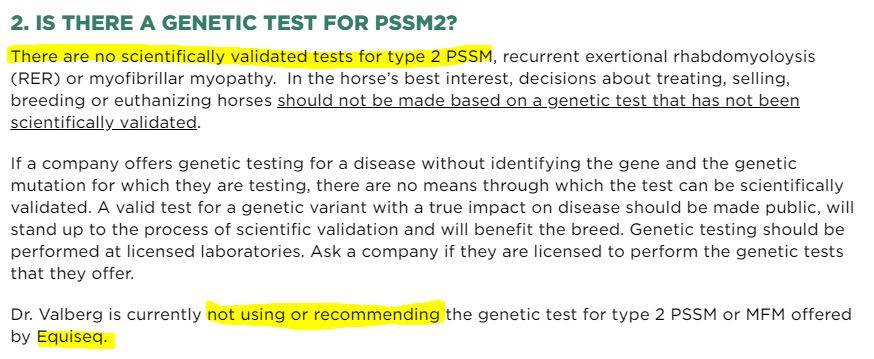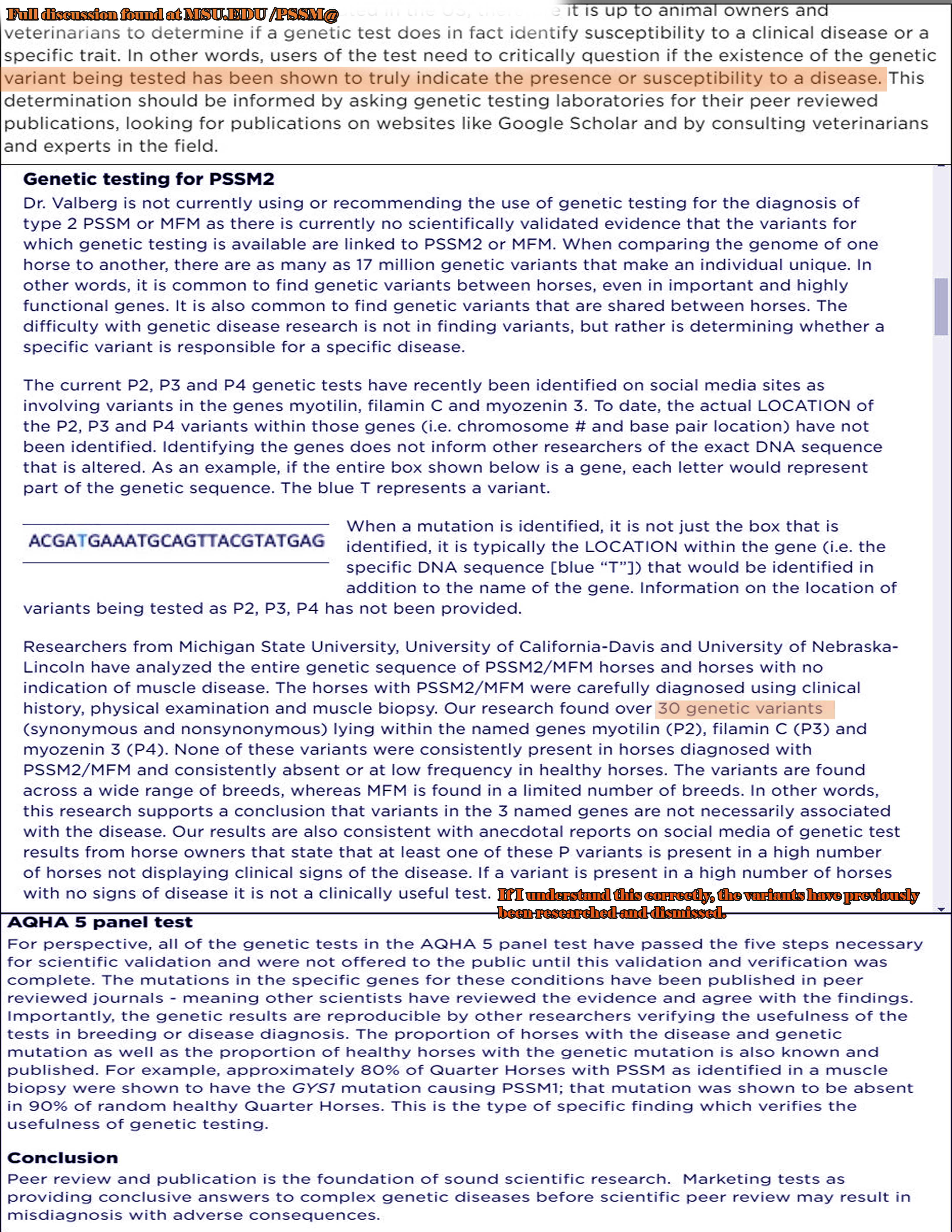HOKAHEYFARM
Muscle myopathies occur in all breeds of horses. Over the years some have been identified and a genetic test has been offered by AQHA through UC Davis. Please refer to the current 5 panel. A recent test MYH1 -Myosin Heavy Chain 1 has been proposed as number 6. These all carry a definitive negative or positive for the varaint tested. Remaining in the pool of muscle myopathies is PSSM2, RER and MFM. Dr Valberg, the recognized world expert, now at MSU, has made several very strong statements about a private sector company that first offered a definitive genetic test for the above diseases but has now dialed it back a bit.
The problem continues to be :
1. There is no license needed to offer tests on animals unlike the rigorous approval needed for humans
2. The private company has not established a definitive link between the varaints and the diseases.
3. The company has not disclosed the number of occurances in the healthy population (control group).
4. The company has not passed or even submitted findings for publication/ peer review.
5. The company's test is not all inclusive - cases of PSSM2 without said variants continue.
PSSM2 is much like diabetes 2 in humans in that environmental triggers are involved. I think many tests will be done to establish all of the factors.
These samples are too small to give a valid estimate of the frequency, so it is best to think of these results as scoring presence or absence in a limited sample across breeds.
Cleveland Bay (23) - P2, P3, no P4
Arabian (20) - P2, no P3, P4
Nepal (20) - P2, P3, no P4
Fell Pony (20) - P2, P3, no P4
Mangalarga (25) - P2, P3, no P4
Campolina (24) - P2, no P3, P4
Mangalarga Marchadore (24) - P2, P3, no P4
Konik (19) - P2, no P3, no P4
Caspian Pony (19) - P2, no P3, P4
Turkoman (22) - P2, P3, P4
Kurd (22) - P2, P3, P4
Selle Francois (22) - P2, P3, no P4
Suffolk (29) - P2, P3, no P4
Haflinger (29) - P2, no P3, P4
Akhal Teke (28) - P2, P3, P4
Peruvian Paso (25) - P2, no P3, P4
Exmoor Pony (32) - P2, no P3, no P4
Tennessee Walker (28) - P2, no P3, no P4
Percheron (4) - no P2, P3, no P4
Shetland Pony (24) - P2, P3, P4
Standardbred (24) - P2, no P3, no P4
Norwegian Fjord (12) - no P2, no P3, no P4
Shire (25) - P2, P3, no P4
Highland Pony (24) - P2, no P3, no P4
Icelandic (20) - no P2, no P3, no P4
WHEN A VARAINT IS FOUND IN NUMEROUS BREEDS IT IS AN INDICATION THAT THE VARIANT HAS BEEN WITH THE EQUINE SPECIES BEFORE BREED DEFINITION OCCURRED.

